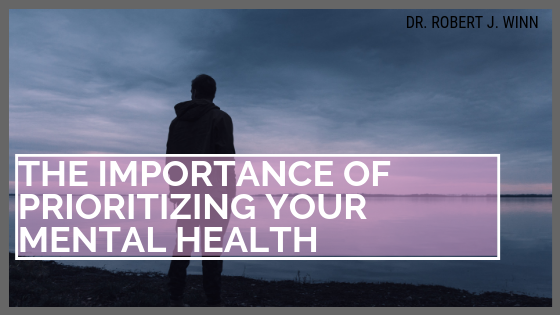It’s no secret that we don’t view mental health the same way that we view physical health. If you break a bone, of course, you would see a doctor and follow the treatment plan to heal. If you need to take medicine for high cholesterol, you’ll take medicine without thinking twice. However, when the issue is in our brains instead of our bodies, our view shifts. Many think taking antidepressants makes you weak and that you should deal with your problems without the aid of medication. Some think visiting a therapist is only for “crazy” people. Why is it that medication is okay for any other health problem, but not mental health? Mental health treatment is still incredibly stigmatized, and that stigma prevents many people from seeking much-needed help. There is no shame in admitting that you need help and are unable to manage your mental health on your own.
Our mental health affects every other aspect of our lives. When you have poor mental health, it leads to worsened physical health and harms the relationships we have with others. Allowing ourselves time to focus on our mental health and put strategies in place to improve it lets us be the best person possible. It also helps you to avoid burnout and be more engaged in your daily life. Prioritizing your mental health can help you avoid getting to the point where you need to seek medical attention. Many people have ignored their mental health for so long that they reach a desperate place, which could have been avoided had they had practices in place designed to encourage a healthy mental state.
For those who are struggling with prioritizing their mental health, here are a few strategies to help.
Start a gratitude journal
Every day, set aside five minutes to write down a few things that you’re grateful for. This practice will help you to examine your life and think about the positives, instead of just the negative parts. Maybe it’s receiving praise at work, or getting dinner with a good friend. Look for the little things throughout the day that made you smile or feel happy. After some time, this process will come more naturally and will help you to appreciate your life more.
Take a ten-minute walk each day
Often, poor mental health leads to a decline in physical activity. Those struggling with their mental health may find it hard to get outside the house and exercise. Exercise releases endorphins and can help you to feel happier, even though it may seem like the opposite. Start small and set aside time to take a short walk outside each day.
Notice your self-talk
We talk to ourselves 24 hours a day, seven days a week. For people struggling with their mental health, their self-talk is often very harmful and can reinforce their negative feelings. Because so many people don’t even realize how negative their self-talk is, noticing the way you speak to yourself is the first step in improving it. Next time you catch yourself calling yourself stupid or worthless or incapable, take a step back and examine why you said that. Are you actually stupid, or did you just make a small mistake? Are you actually incapable of a task, or did you just need help in completing it? Soon, you will get better at catching your negative self-talk and turning it into positive self-talk.
Enjoy without feeling guilty
When we are busy in our lives, it can be difficult for us to take time for ourselves without feeling guilty about it. We may think that time would be better spent cleaning the house or preparing notes for a meeting at work tomorrow. However, failing to give yourself any time in a day to do what you enjoy, whether that’s reading, watching a movie or getting coffee with a friend, your mental health will suffer for it. Your life should be lived for yourself too, not just for other people.
Stop multitasking
Throughout the day, many of us have so many tasks to accomplish that we often try to get some of them done at the same time. Instead of focusing entirely on one task, we divide our attention between many different tasks, which ensures that no task gets the attention it deserves. By trying to do so many things at once, we engage less with the people and events around us. This makes us feel disconnected socially and emotionally from those around us. One study even found that people feel unhappier when distracted from the task they’re working on. Change this by focusing on one task at a time. When you’re at home, focus on home tasks, and not work tasks. When you’re out with friends, focus on spending time with them instead of thinking about what needs to be done once you’re home. Be present in each moment and take each task one at a time.


